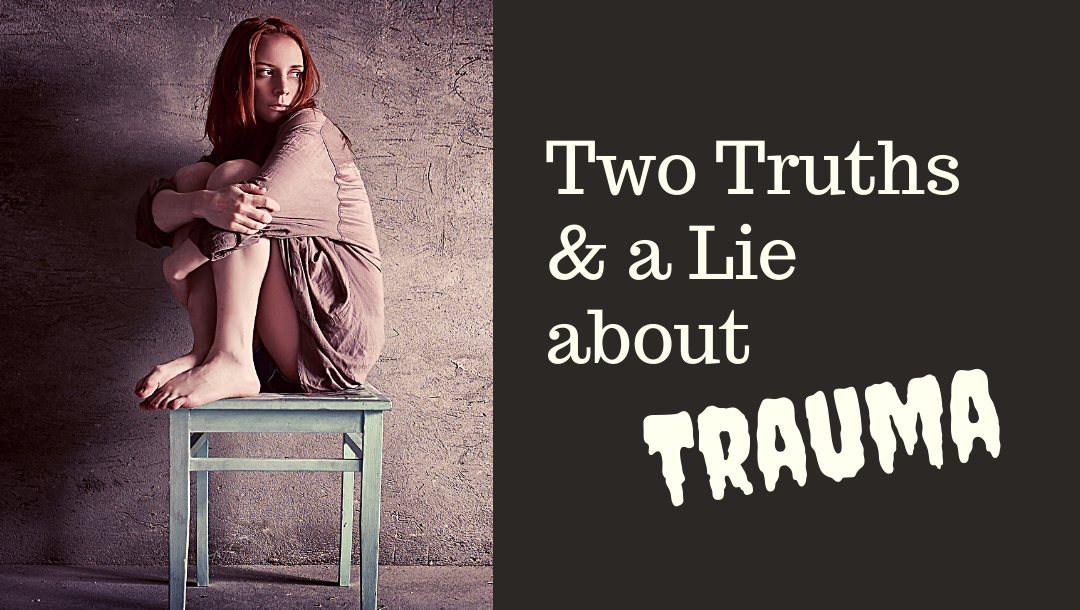Medical Trauma: COVID, Cancer, Autoimmune Disease and More
/I have heard the term “medical trauma” used much more frequently this past year than in previous times. The pandemic has brought it to our attention and potentially many people are experiencing it. Just because the term has become more common doesn’t always mean that it is used appropriately, or even that the common meaning is well defined. Let’s talk about medical trauma today and answer a few questions: What is it? And how would a person know if they may have it? Is it treatable?
Medical trauma isn’t an actual diagnosis, but some people who experience medical trauma develop post traumatic stress disorder. At first glance it seems pretty obvious that medical trauma refers to trauma that is caused by some sort of medical scenario. In the past year it has become more commonly used because of so many people recovering from COVID after severe illness, hospitalization, perhaps even being put on a ventilator. Being in the hospital is never a pleasant experience, but being in a hospital with loved ones not allowed to visit and medical staff gloved and masked and getting in and out of the room as quickly as possible is unsettling and potentially traumatizing. Add to that the news coverage of trucks parked at morgues and death rate statistics being repeated and updated around the clock, it becomes likely that a person can be traumatized, even if they are not hospitalized. As if that was not enough, we then started hearing about the long recovery process and the “long-haulers”. It becomes overwhelming. Everyone who contracted COVID has the potential to develop post traumatic symptoms. Some will experience these symptoms for a few weeks and then recover, while others, without treatment may potentially experience symptoms for years. I want to take an opportunity here to specifically speak to the COVID long haulers. I have noticed a striking similarity between long haulers and physical symptoms of clients with other non-medical trauma. I can’t say for certain because the research is still ongoing, but I suspect that at least some of the long hauler symptoms could be reduced by treating post traumatic stress. I would be happy to schedule a consultation with you if you would like to know more about this.
Of course COVID is not the only source of medical trauma. Some people have medical trauma due to being diagnosed with a life threatening illness such as cancer. Even if the person later makes a full recovery and is given a clean bill of health, they may have flashbacks to that moment when they received the diagnosis, or they may have sleep difficulties or other symptoms that persist. A heart attack or stroke can cause psychological trauma. Others are diagnosed with a chronic condition such as multiple sclerosis. These types of chronic and debilitating conditions can create multiple layers of trauma as well as grief. You may be traumatized by the initial diagnosis and then grieve each new loss of physical ability. This happens with COPD, neurological conditions, arthritis and more.
Medical procedures can cause trauma symptoms. While this is especially common among children because they do not have the cognitive abilities to understand that they are safe even though they are in a scary situation, it can also happen with adults, particularly when a procedure does not go smoothly. If you have ever had a nurse not be able to get an IV in on the first try and then the next time you had to have an IV you found yourself nervous, sweating or your heart pounding, that is an example of how even a small, routine procedure can cause medical trauma. That example doesn’t rise to the level of a post traumatic stress disorder diagnosis because it is not life threatening or causing serious bodily injury, but it illustrates how medical trauma can affect a person. Of course more serious complications during a procedure also create the potential for medical trauma. For example, someone’s hand went numb because medication was not injected into the blood stream but the surrounding tissue. A person’s leg was paralyzed during a surgery. A person was told after surgery that they died on the operating table. An allergic reaction to medication caused anaphylaxis. The list goes on.
Now I want to take some time to address a particular type of medical trauma: autoimmune disease. The biggest contributing factor to trauma for the individuals I have spoken to about this, is the pervasive disbelief they experience from the medical community. I once had a doctor tell me I didn’t have something that I knew I had. He was dismissive and rude and implied it was all in my head. However, the test he ran confirmed my self-diagnosis and he grudgingly gave me the antibiotic I needed. (I changed doctors). Unfortunately, for those with autoimmune disease it is not that simple. There isn’t an easy test, a quick prescription and you’re on your way to recovery. The journey to diagnosis often involves multiple doctors, many tests (many of which come back negative), multiple medical professionals eyeing the patient suspiciously and implying that there is nothing wrong with them, suggesting they just have anxiety or depression. Over and over, the message is that it is all in your head. And more than likely, if this has been your story, you have some level of medical trauma. Any diagnosis of chronic illness has the potential for medical trauma but autoimmune disease has a sinister subtleness to it because it may cause a person to doubt their own perception of reality.
How would a person know if they may be experiencing medical trauma? The common symptoms of trauma are:
Intrusive memories: stressful memories that pop into your head for no apparent reason or at unwelcome times
Flashbacks: feeling like you are reliving the stressful experience
Physical symptoms such as heart pounding, sweating, etc when you are reminded of a stressful memory
Avoiding thinking about the stressful experience
Avoiding people, places and things that remind you of the stressful experience
Sleep difficulties such as insomnia and/or nightmares
Feeling edgy or on guard
Easily startled
Loss of interest in things you used to enjoy
As you can see there is some overlap between trauma and anxiety and depression which may be why so many medical professionals assume that it is just anxiety or depression and prescribe medication. However, medications treat symptoms, therapy treats the underlying cause. Trauma is treatable. Many people make a full recovery with proper, evidenced based treatment. Most have greatly reduced symptoms. As a trauma specialist, I am trained in multiple evidence based types of therapy for trauma. Two of the better known trauma therapies, which are approved by the Veteran’s Administration for the treatment of Post Traumatic Stress Disorder are EMDR (Eye Movement Desensitization and Reprocessing) and CPT (Cognitive Processing Therapy). I am trained in both. Call for a free consultation and we can work together to create a recovery plan tailored to your needs.














Trauma is not something wrong with you. It is something wrong with what happened to you. Click the image above to learn more about how I can help you overcome trauma.